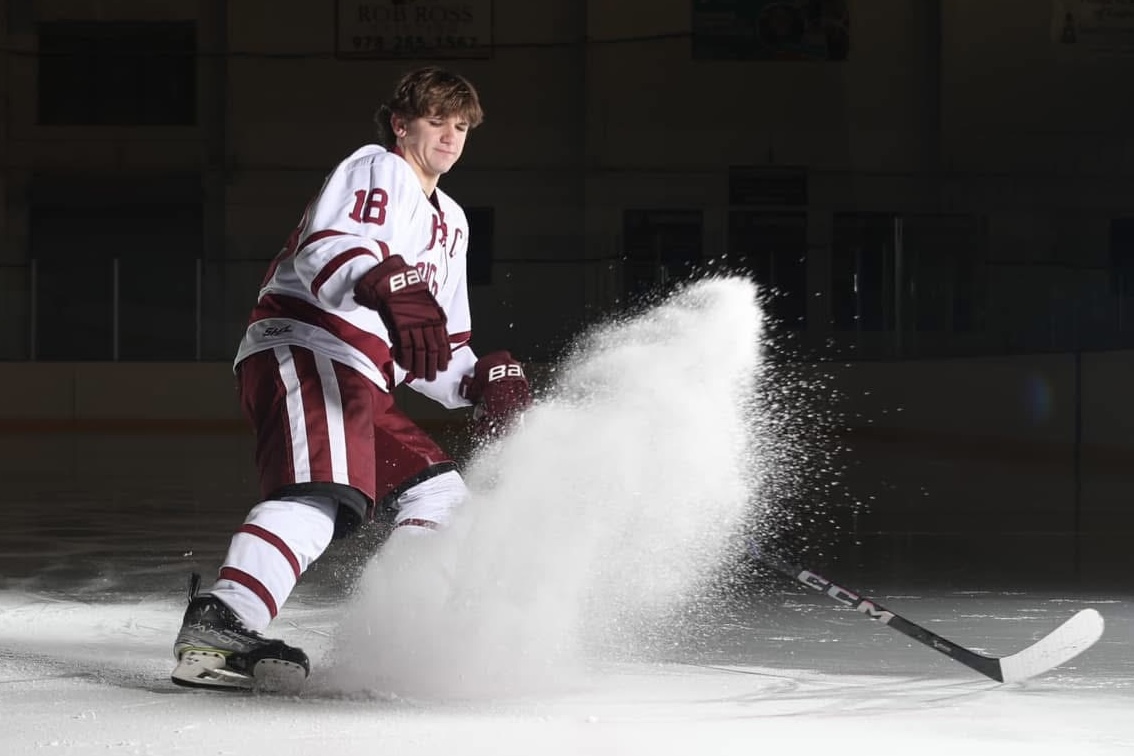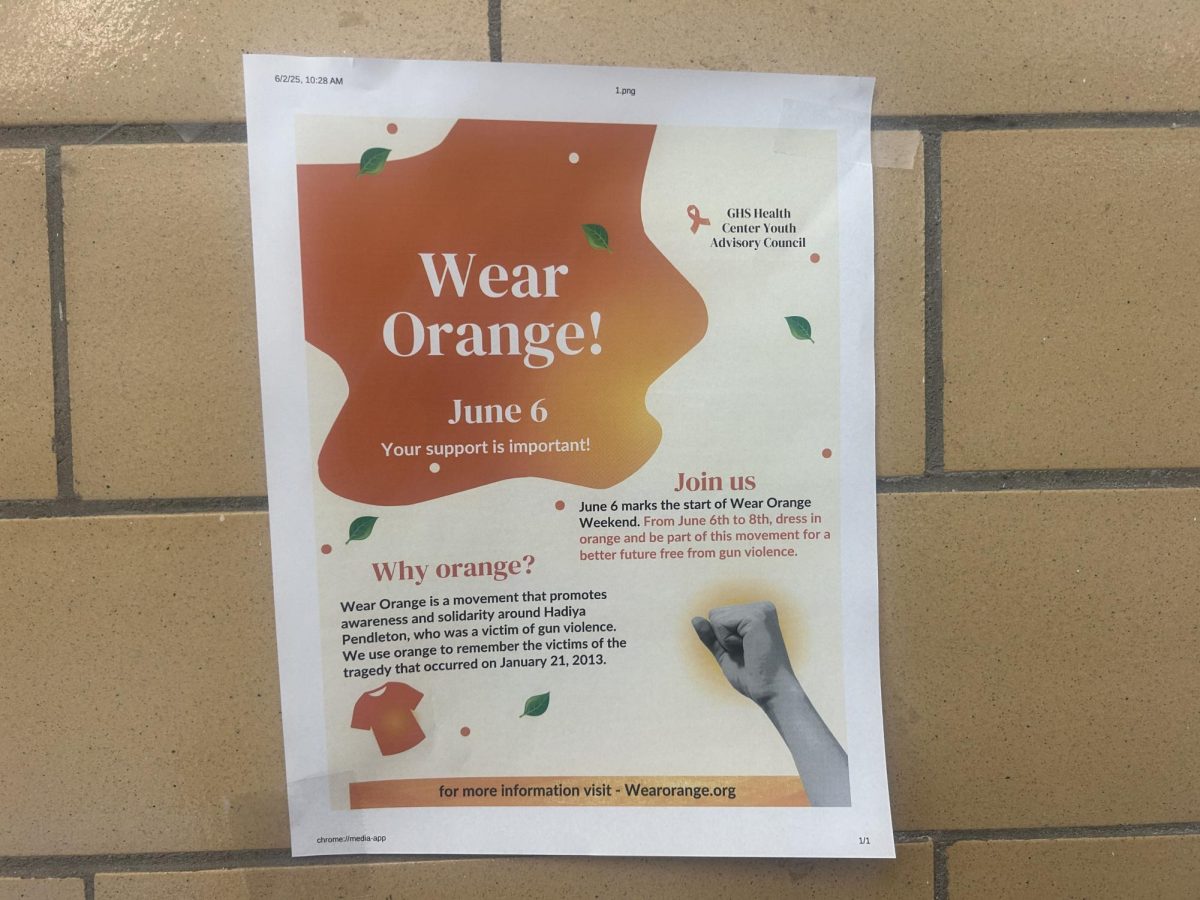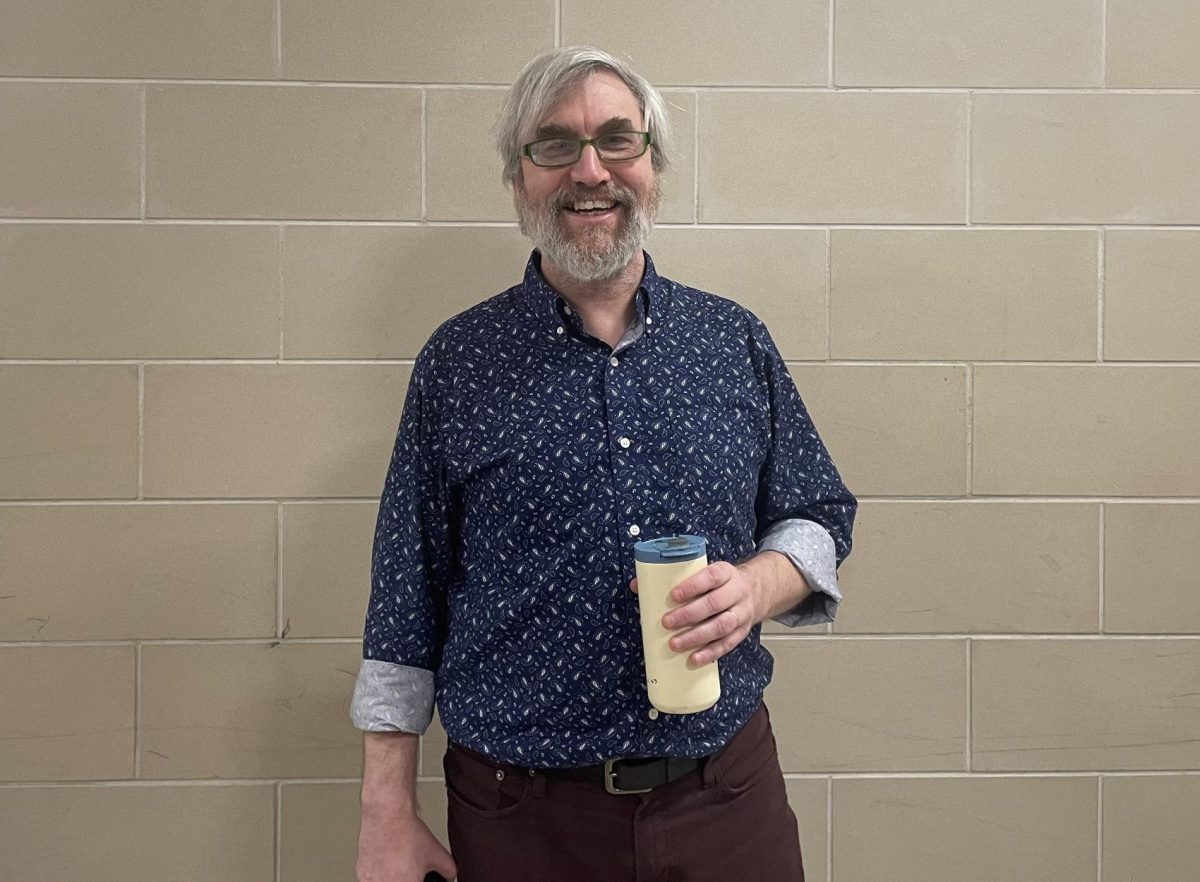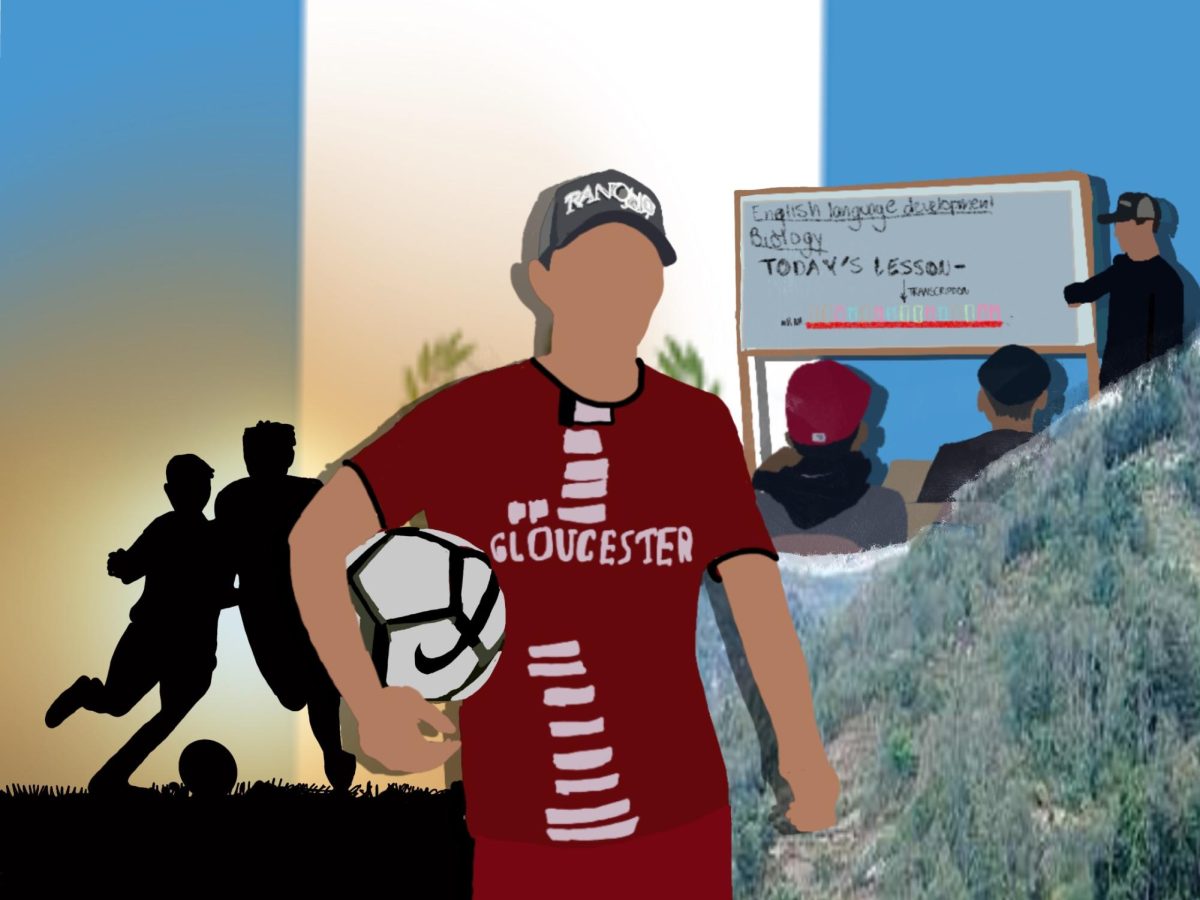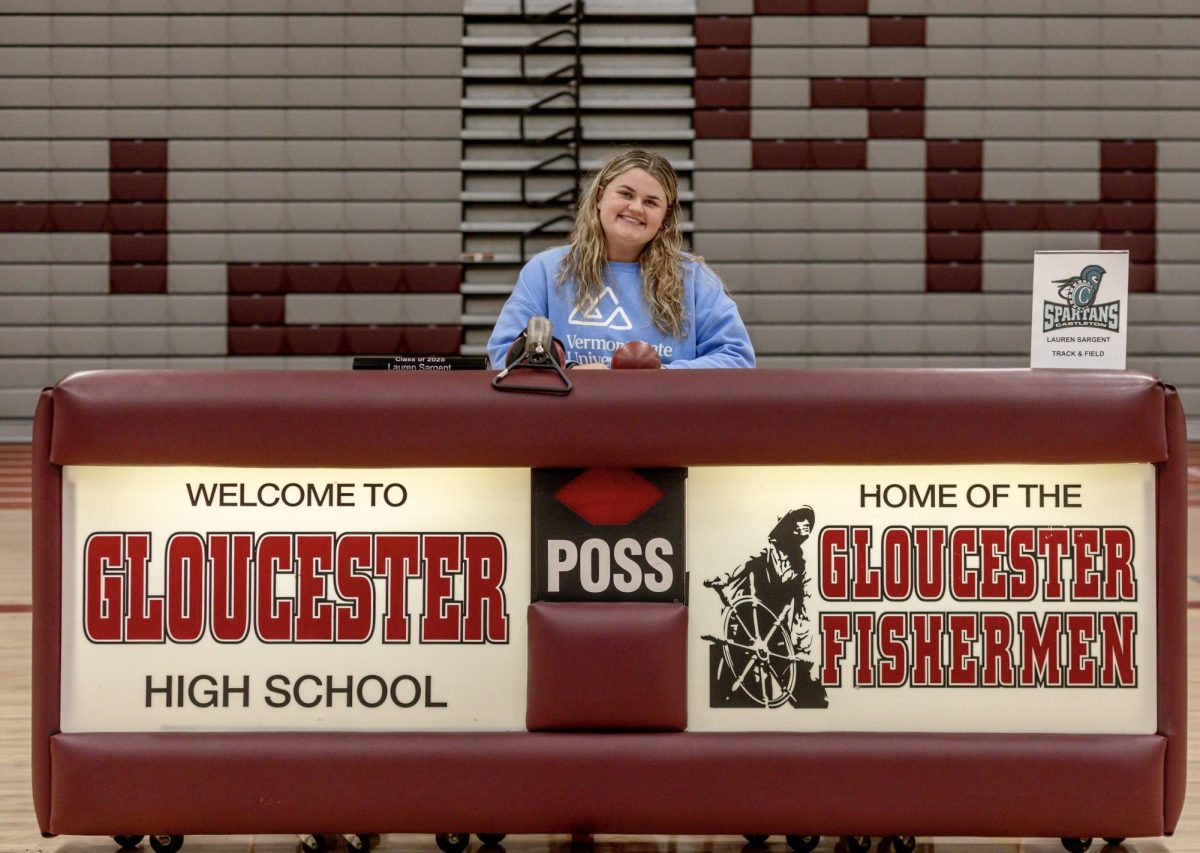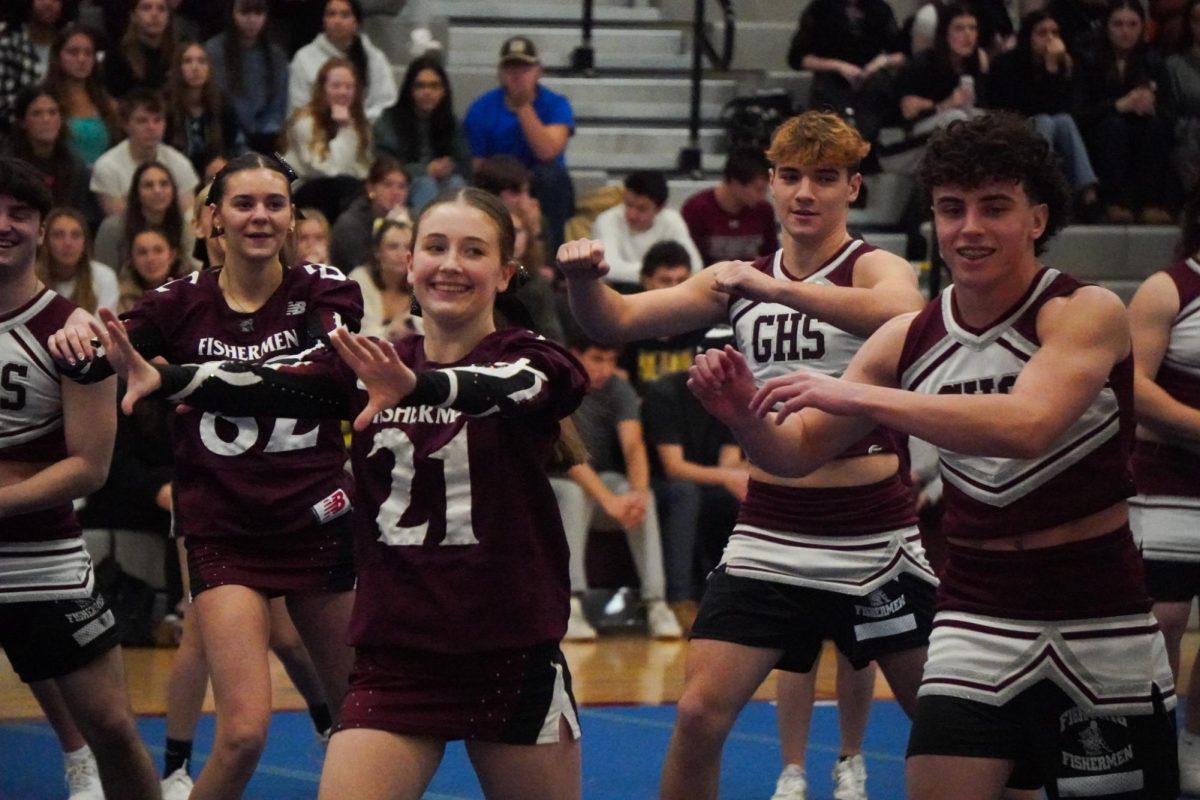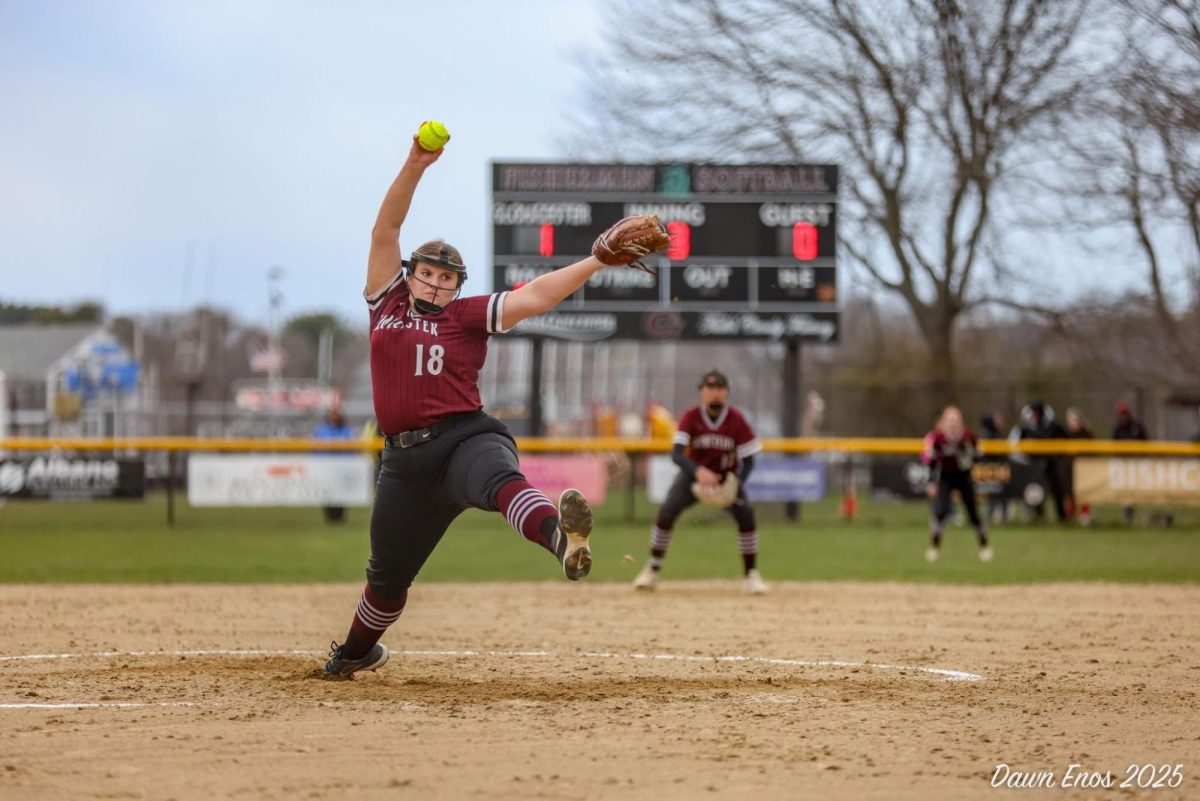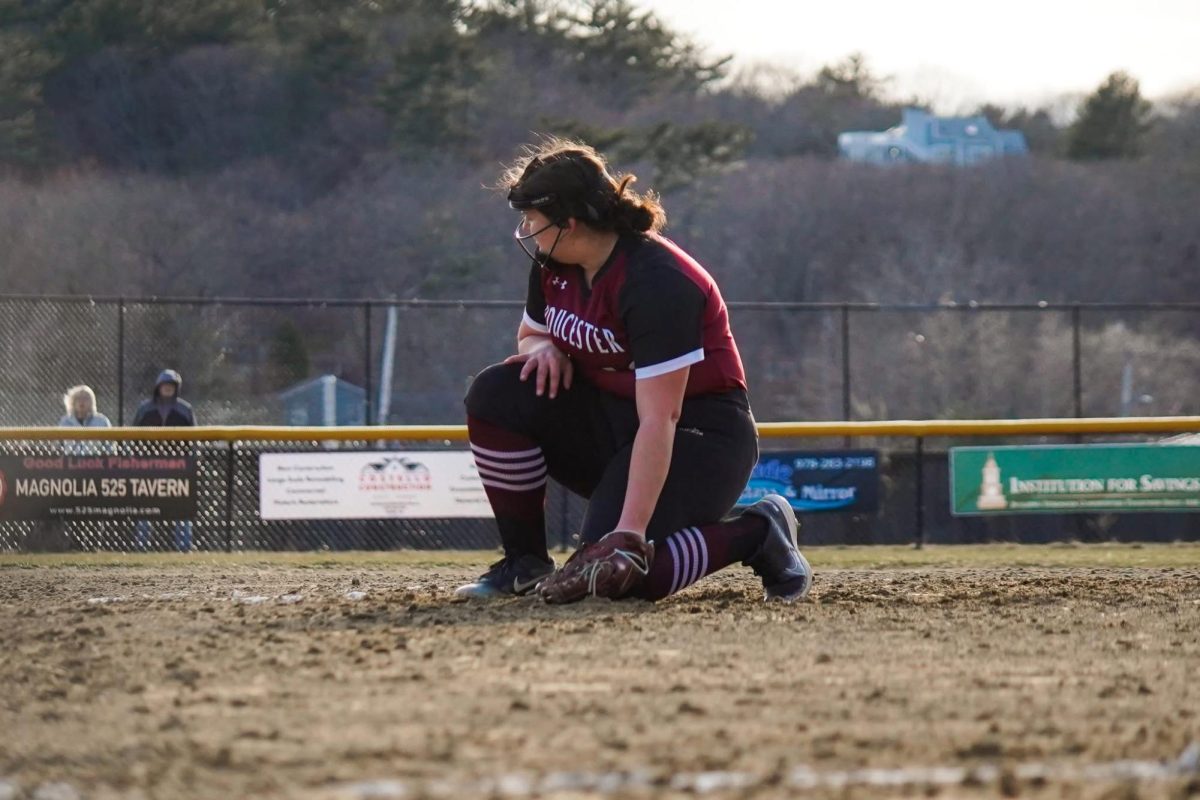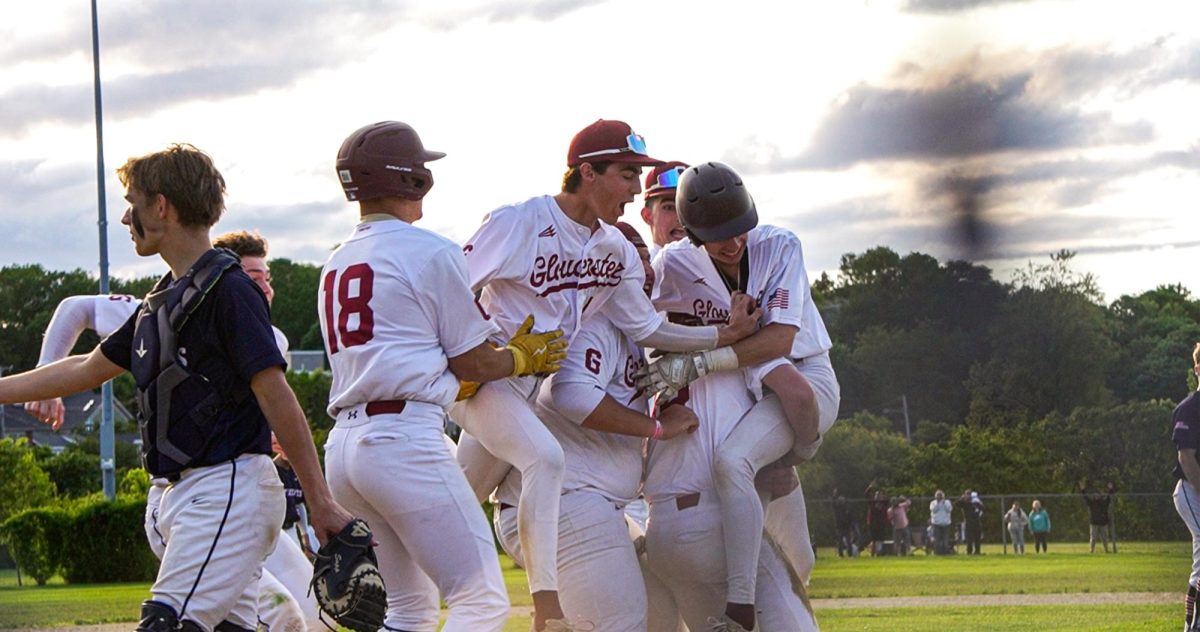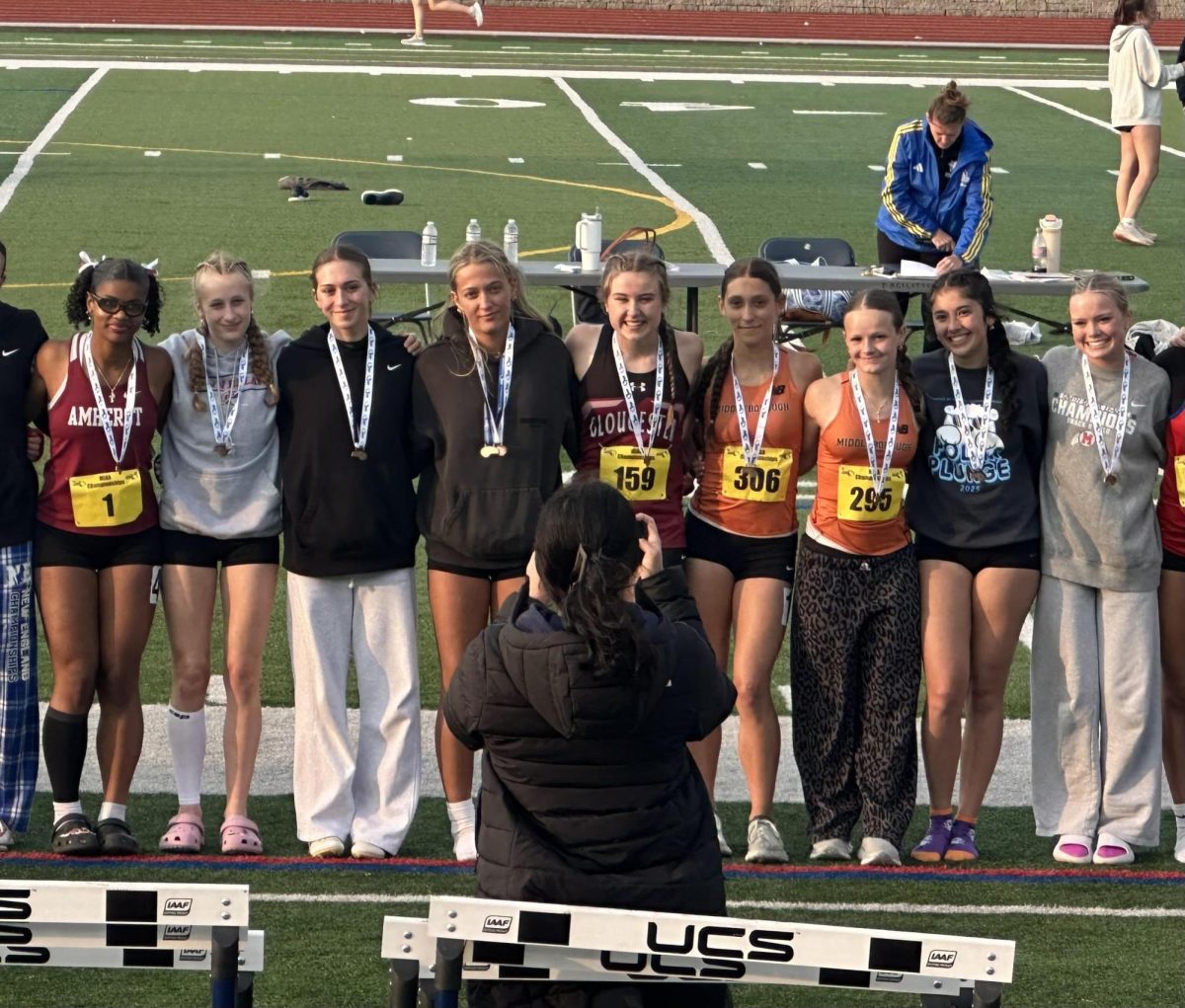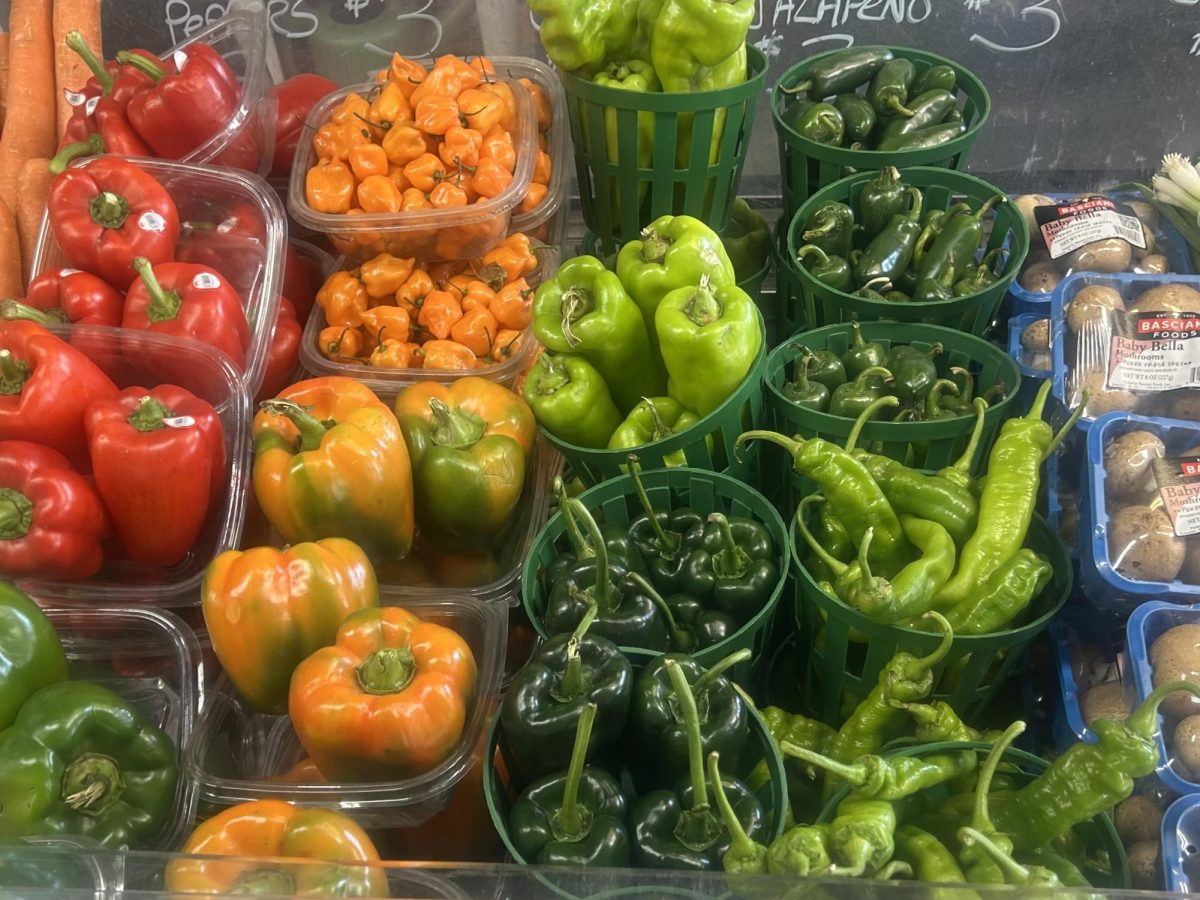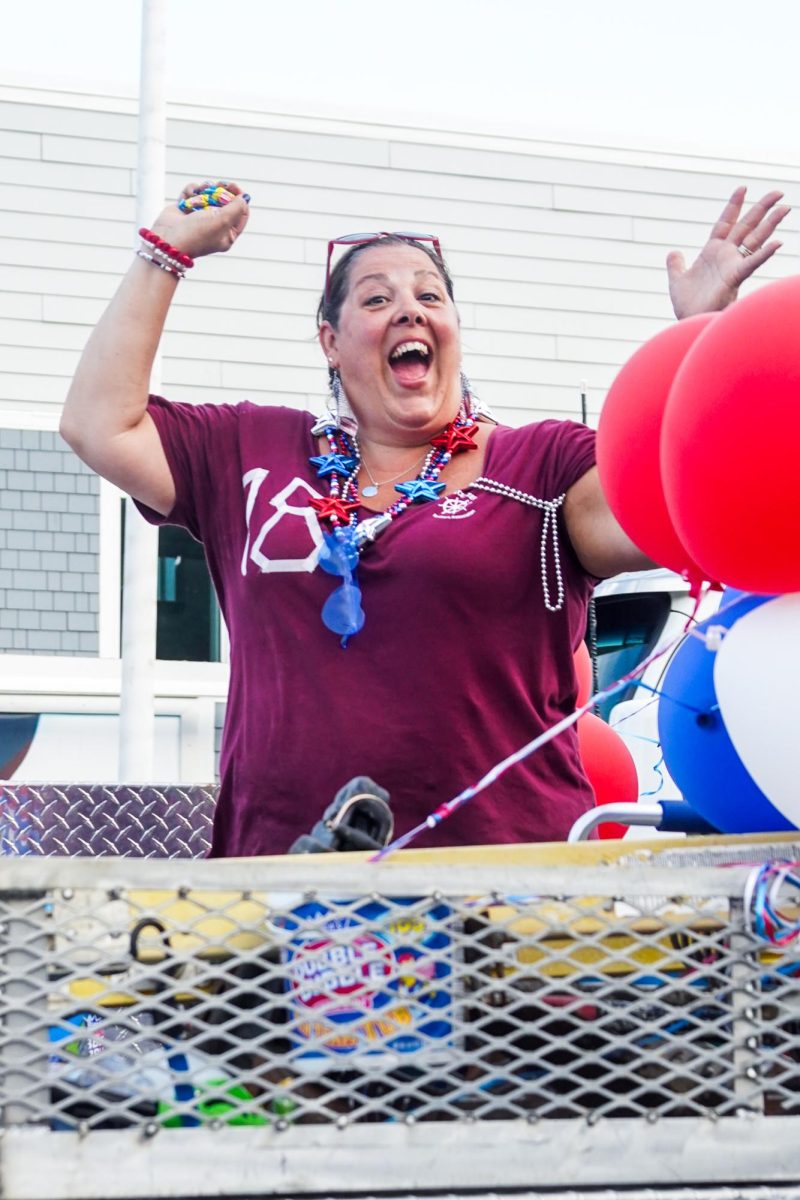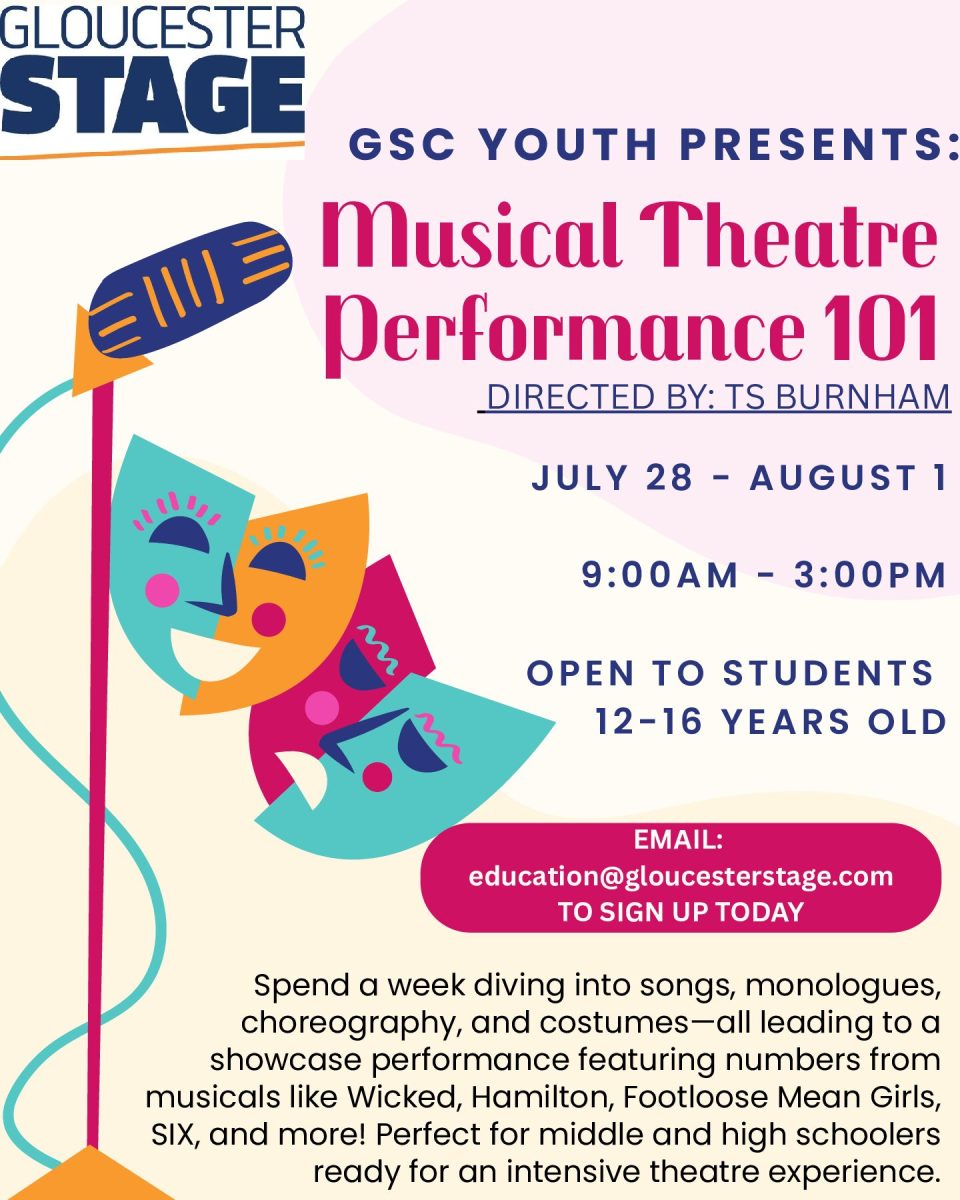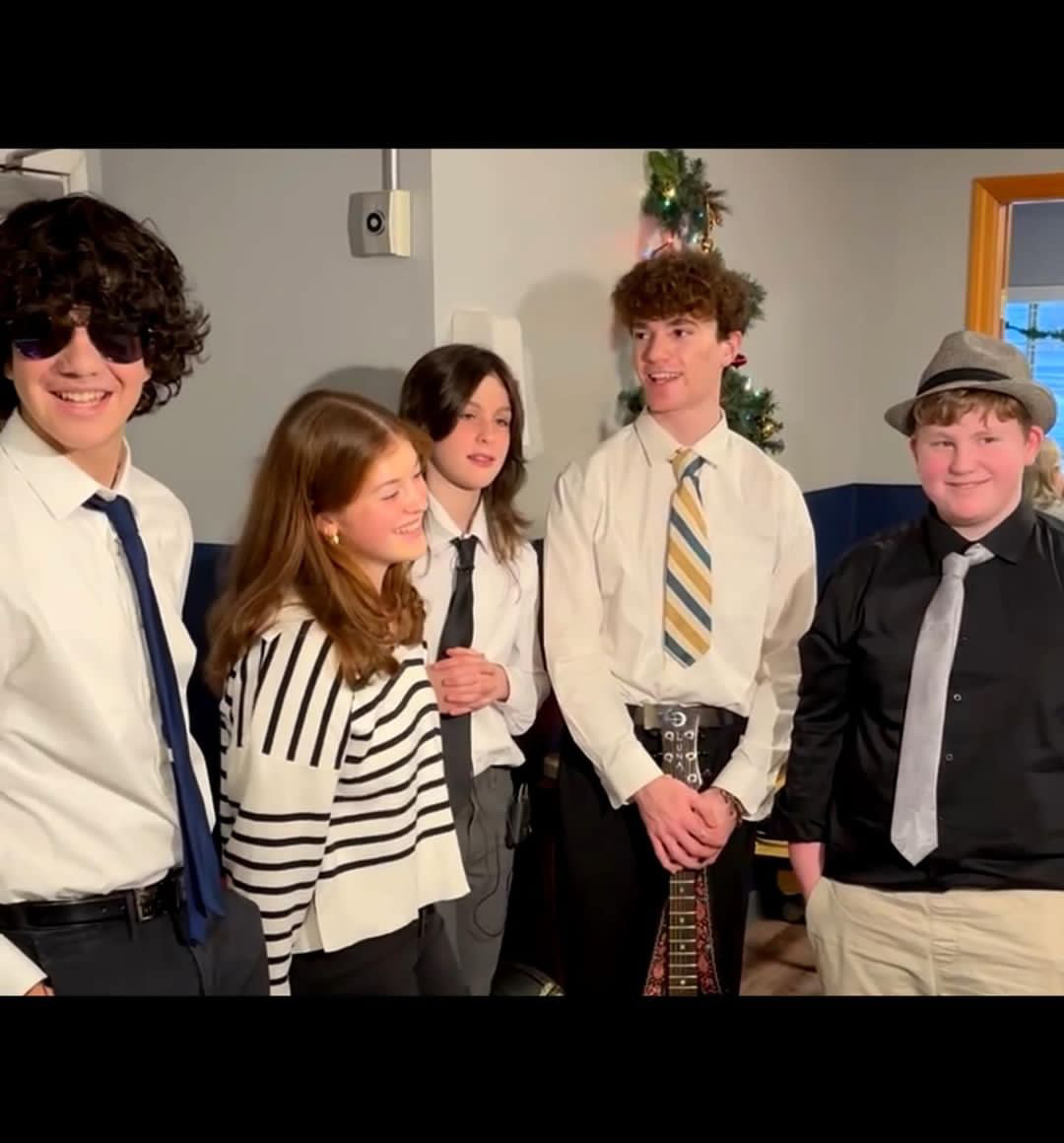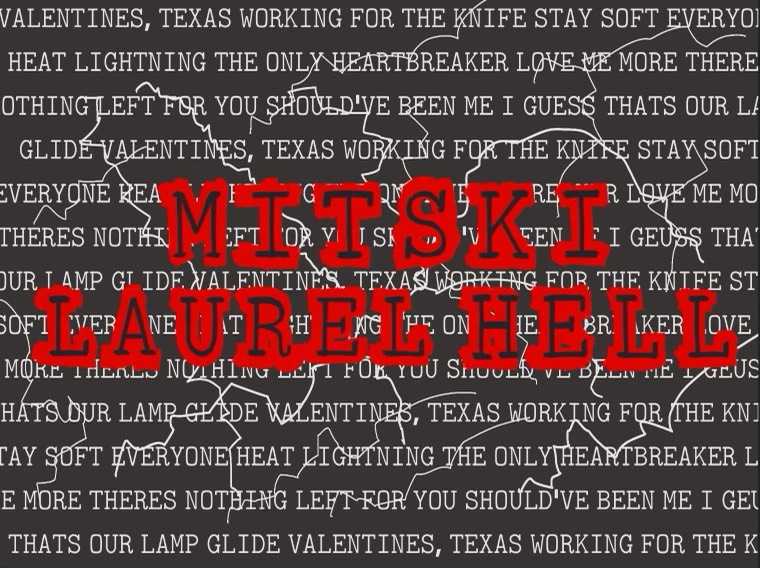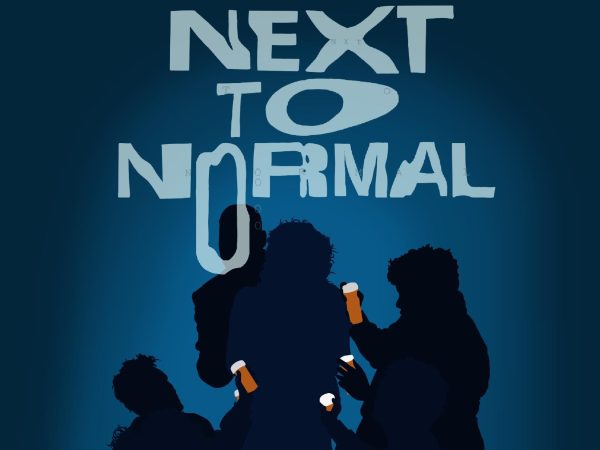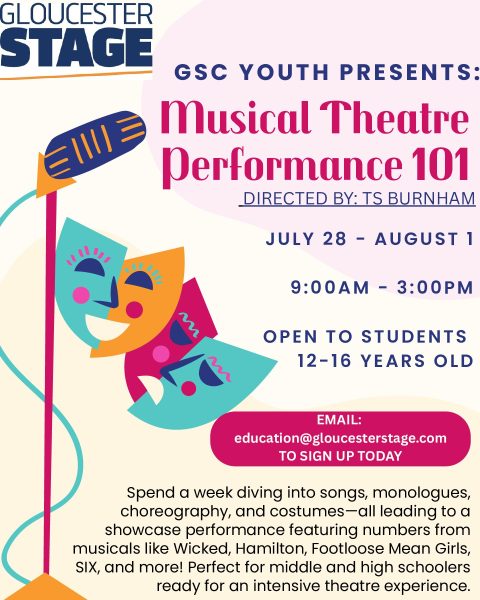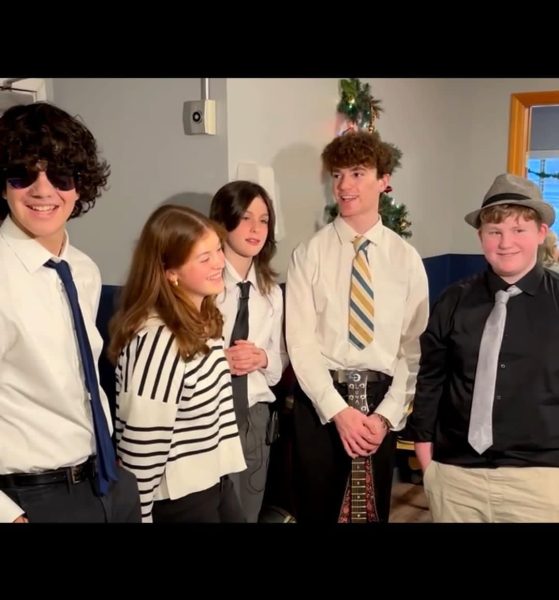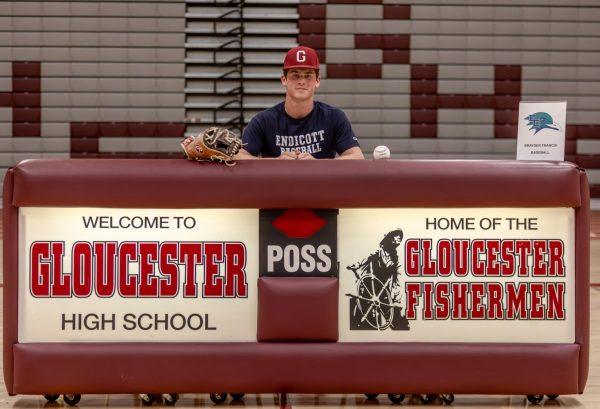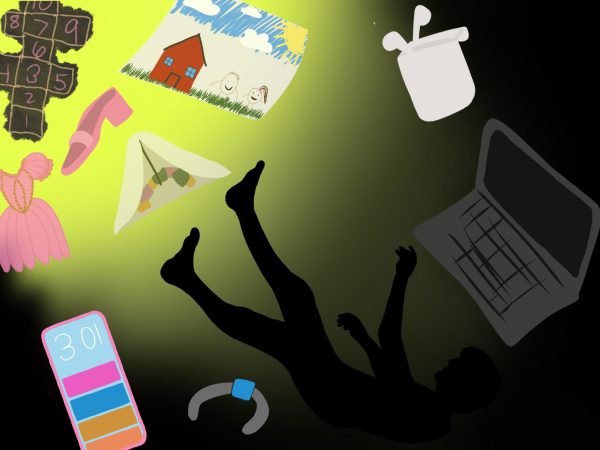“Laurel Hell” marks a shift in sound for singer-songwriter Mitski
Willow Barry’s artistic rendition of Mitski’s “Laurel Hell” track list represents both the orderliness and chaos of the album.
Known and lauded for her enigmatic songwriting and versatile styles, Mitski has earned a reputation as a rare artist who can balance uninhibited musical creativity with massive popularity. The experimental, indie rock sounds she played with on “Be The Cowboy” and “Puberty 2” certainly weren’t meant to garner ten million Spotify listeners, but she’s since become a favorite of many overemotional, under-understood Gen Z’ers—a sizable demographic.
“Laurel Hell” is a bit more muted than its predecessors, a bit glossier, a bit more accessible. Its cover art is indicative of the distinction: a shot of her thrown-back head with shiny black hair, red lips, and an accentuated jawline. This Mitski is sleek, sexy. While her voice is as steady and hypnotic as ever, what surrounds it has changed. Brash guitars have been replaced by disco-tinged synths, harsh instrumental lines with more palatable pianos. These are fine as far as they go, but you’ll find nothing here that Beach House hasn’t done better (at least three times, by my count).
True to Mitski’s style, “The Only Heartbreaker” is deeply personal. “If you would just make one mistake / What a relief that would be / But I think for as long as we’re together / I’ll be the only heartbreaker,” she begs, admitting she’s more scared of seeing a relationship through than ending it herself. The issue here is that it’s backed up by a stale electric guitar-drum pattern straight out of a cliché, action movie training montage. A more unique production could have amplified Mitski’s poignancy; here, it only distracts.
It’s worth mentioning that “Laurel Hell” almost didn’t exist. After proclaiming a hiatus in 2019, Mitski was reminded that she had yet to fulfill her contractual requirement to her record label.
Keeping that in mind is really what brings the album’s themes together: Mitski is grappling with leaving what she’s known, acknowledging what it’s given her, and dealing with the loss of something so crucial to her identity. She needs validation—that’s proven on the frenetic “Love Me More,” her repeated wailing of the title carrying the crushing weight of anxiety.
The flipside is standout “Heat Lightning,” where she concedes “Not much I can change / I give it up to you, I surrender.” But what truly sets the song apart is its gorgeous, folky ambience—it deepens the solemn, four a.m. landscape illustrated by its lyrics. “On the ceiling dancing are the things all come and gone,” she laments. Maybe she’s letting go of opportunity, or maybe she’s simply seeing visions as she descends into slumber. Who’s to say.
Coming to terms with unexplored paths, ridding oneself of the world’s merciless expectations, is established early in “Laurel Hell.” Mitski asks who she’ll become tonight, offering herself as a mystery. The song begins to crescendo; in the end, her voice is commanding: “Let me watch those mountains from underneath / And maybe they’ll finally float off me.” She reaches the same conclusion on the more sinister “Working for the Knife,” in which her grievances with the music industry are aired. “I always thought the choice was mine,” Mitski confesses, before owning her actions: “I’m dying for the knife.”
“I Guess” certainly sounds like the closer, the album’s natural climax. And it is a showstopper, the ballad in which Mitski truly confronts the end of, well, something. All of the tracklist’s previous allusions and metaphors are expressed here plainly: “I guess, I guess / I guess this is the end” she quietly ponders. “Without you, I don’t yet know quite how to live.” Many people don’t understand how abruptly, with how little fanfare, their lives can shift in an instant. What comes next is undefined. Mitski doesn’t know, she guesses.
Immediately after, however, “That’s Our Lamp” hits the ground running with a bouncy synth. The song is, of course, aware enough to know that it sounds misplaced, maybe tacked onto the end of an already complete body of work. But its flourishing strings and uplifting nostalgia make it far too irresistible to label it as such. She’s ending the album, and potentially her music career, on a note of jubilation rather than overt contemplation. Mitski has a knack for inflecting even the most throwaway lyrics with enough emotion to yank at the heartstrings. “That’s our lamp / It shines like a big moon” comes off as endearing rather than ridiculous. However, it’s all in the past—as the song fades away, Mitski is joined by a triumphant orchestra while she repeats: “That’s where you loved me.” In the words of Dr. Seuss, “Don’t cry because it’s over. Smile because it happened.” According to “Laurel Hell,” Mitski agrees.
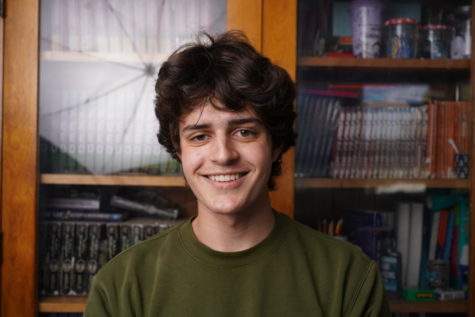
Ben is a senior at GHS and is returning to the Gillnetter this year. He enjoys running, listening to music, and doing crosswords. When he finds himself...
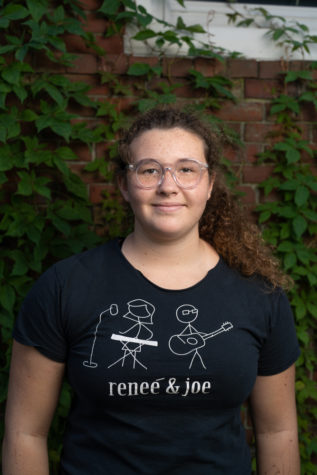
Willow is a junior at GHS, and is a second year writer/illustrator for The Gillnetter. She swims for the school and a private team, she also enjoys participating...
